In the Spring of 2020, the COVID-19 pandemic disrupted the lives of college students around the world with classes moving online, internships rescinded, and graduation ceremonies cancelled. These developments have affected the career plans and aspirations of a generation of college students. CCWT launched this oral history project to document and amplify student voices and experiences during the pandemic.
The death of George Floyd, a 46-year-old Black man brutally killed by a Minneapolis police officer, sparked protests for racial equality across the globe. Protestors in cities all over the United States took to the streets to support the Black Lives Matter movement in the fight against police brutality and systemic racism. Like youth in other countries, UW-Madison students participated in local demonstrations at the state’s capital. Local newspapers featured pictures of protesters facing off against Madison police officers [1]. Demands for solutions to local and national inequities across the country as well as efforts to acknowledge America’s racist past and present have inspired the dismantling of statues and landmarks across the country, including Wisconsin’s “Forward” statue and a statue of Union Civil War Colonel Hans Christian Heg [2].
The devastations of the pandemic have only compounded the racial disparities that have persisted in institutions and societies across America. In March of 2020, Madison’s virtual townhall addressed hate-speech and anti-Chinese sentiments displayed on UW-Madison’s campus [3]. Faculty pushed the university to condemn these racist incidents and others incited by President Trump’s use of the term ‘Chinese virus’ when addressing coronavirus case increases. As students traverse the COVID-related changes, economic challenges, and health-related concerns, they have also had to digest, confront, and participate in conversations and actions related to race and racial inequality. For many students, including those interviewed below, this has had significant impacts on how they view their place in the world as well as the ways they may use their future careers to disrupt racial inequality.
UW-Madison students Jessica Hsu and Thaddeus Gue, with assistance from graduate student Alexandra Pasqualone at CCWT, conducted and edited interviews, which demonstrate the ways the protests for racial equality, in combination with the pandemic, have impacted the lives and career trajectories of university students.
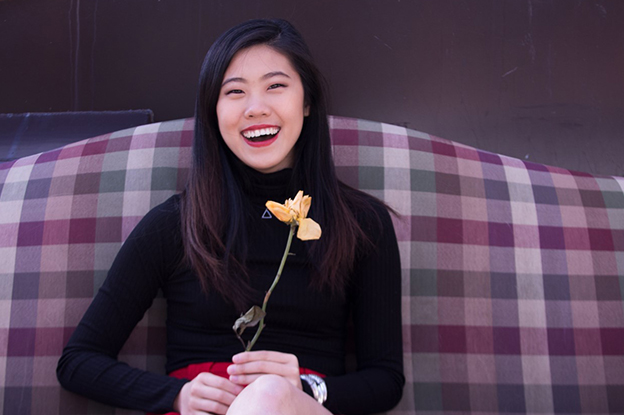
“It has been a period of constant education, questioning, and conversation.”
Cynthia Liu recently graduated from UW-Madison with degrees in Marketing, Information Systems, and Communication Arts (Film, TV and Radio). Unlike many Americans, Cynthia experienced first-hand what was to come after a trip to China in January 2020, which foreshadowed the problems the USA would be facing by March. She describes this early run-in with the far-reaching impacts of COVID.
Cynthia: I knew from my relatives back in February that schools were shutting down and I was already preparing myself for that scenario. I did not think that the U.S. would respond in the way that China would. China shut everything down. I thought Americans wouldn’t treat it as seriously, so I did not think it would be a big deal.
Cynthia, in her interview, discusses the many changes to her daily life and remaining coursework, yet also notes that her membership as part of the Asian community was directly impacted by the response to the coronavirus outbreak in the United States. In one instance, Cynthia was confronted by blatant racist remarks while shopping at her local grocery store.
Cynthia: There was a guy who came up to me and asked me if I was from China. I said, “No, I’m from Chicago,” and he said, “Good because if you are from China, then I’m getting the fuck away from you.” That was the most blatant aggression that I have received.
In addition to these direct confrontations with racism, Cynthia discusses what she describes as microaggressions she has encountered as a student, including those stemming from the actions of the university.
Cynthia: From the first moment I stepped onto campus, I was not invited to MyUW Day, which is the first day all students get to see the school and talk to other students. I was only invited to MyUW Day for students of color. It was an interesting first moment on campus. I understand that they are trying to create a safe space, but I also think that that was segregating.
Other moments have highlighted the discrepancies between her experiences and those of her peers, including an activity as part of the Business School which demonstrated the many privileges of white male cis gender students. Rather than highlighting the impacts of these discrepancies, she felt that her and other students of color had wasted their time on an activity that only exacerbated the feelings of fear and isolation faced by minority students on campus.
Feelings of isolation and confrontations related to anti-Asian and racist sentiment experienced by students of color became more apparent after the death of George Floyd and the protests that followed. Cynthia notes, “I think it has affected all of us.”
At the time, Cynthia and a few friends were collaborating to work on an Asian American platform which would address issues within the community. One such issue included placing Asian Americans in conversation with concerns related to minority communities, including anti-blackness in the Asian community.
After growing up in a predominantly white community and spending much of high school around Asian and white students, Cynthia spent a lot of time researching and reflecting on the ways she herself may perpetuate anti-blackness. At UW-Madison she has continued to reflect, stating:
Cynthia: there is a lot of bias that I have, which I have been thinking about lately. I feel like every few months something like this happens. It forces us to look back at ourselves to say…It has been a period of constant education, questioning, and conversation. For me, it is about, “How do we talk about it in the Asian community so we can better position ourselves in this community to help with anti-racism efforts?”
Reflecting on these experiences with racism has not only impacted her personal life, but also her academic interests and future career plans. Addressing this, Cynthia notes, “I was always planning to enter a field that allowed me to tell stories and inform people. That was the entire reason why I wanted to work on short-form documentaries…This is a fight that we all must be a part of. I want to know that I am putting my energy into the correct place.”
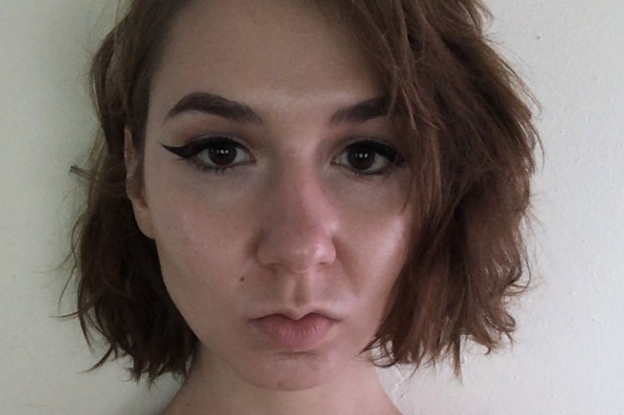
“The pandemic has given us space and time to change things.”
Like Cynthia, Anna Sipek was also impacted by the recent protests in Madison—a moment which has since shifted her perspective on potential career options. At the time of the interview, Anna was in her junior year, double majoring in Computer Science and Communication Arts. She describes to the ways how she has become a more active student since the transition to online courses, yet school is not the only realm where she finds herself becoming more active. “I have been trying to go to protests as often as I can,” she claims.
Although clearly invested in participating in the movement, Anna also acknowledges the risks she is taking by joining these protests. In addition to participating in protests, she has kept a closer eye on local politics and the ways officials are responding to new calls for change.
Anna: It is a weird time to be protesting because there are so many people around you and a pandemic happening. For someone like me, who has super bad health anxiety, it is not the best. I have been trying to go out there. I do my best. I think I have also been paying more attention to local officials than I have in the past, asking, ”What is the mayor doing?” or “What is the city council doing?”
Unlike Cynthia, Anna has had a very different experience as a white female on Madison’s campus. When asked whether or not she has encountered racism as a college student she responded with, “I am white, so no, there is no racism towards me. Have I seen it around campus? Yes, especially in relation to the pandemic. People are purposely avoiding Asian students—stupid stuff like that.” Anna, like many who are marching with BLM and petitioning for changes on campus, recognize that students, such as Cynthia and others, have had to navigate additional hurdles as minority students.
These new understandings, brought on by recent protests, have ultimately shifted Anna’s career goals. Originally interested in obtaining a government-related job, Anna has since been convinced that she will have the most impact working alongside activist organizations,
Anna: here are a lot of areas that we can improve on and I used to want to change it from the inside. As of right now, I do not think change from the inside is what is going to end up having the most impact.
Even as the pandemic has significantly upset Anna’s personal and professional plans, she notes the silver lining of coronavirus changes.
Anna: The pandemic has given us space and time to change things. A lot of people out protesting probably would not have been able to do that a few months ago since they had jobs they had to go to. They have to support their families. Since a lot of people cannot go into work, they have this opportunity to rebuild their community.
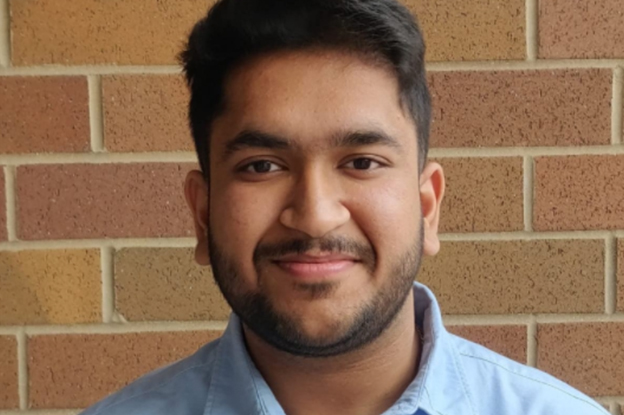
“If you had a stack of dominos, George Floyd is just one of them. That has been building up for many years.”
Akshat Raika is a Computer Science and Applied Mathematics major at UW-Madison. While he spends much of his interview discussing the transition to online classes and the difficulties job seekers face during this time, he also talks about his own take on the protests and experiences of racism. Like Cynthia, he addresses how conversations related to the protests and systemic racism reflect many of the experiences and conversations he has had prior to recent national and local outrage.
Akshat: As a person of color I always talk about race. In day-to-day life you face some type of discrimination here and there. You also feel a little out of place in certain places due to the identity you belong to. I think recent events bring back all those feelings, initiating a lot of thoughts in your brain making you want to do something. At some point enough is enough and that is why the protests are going on and I think it was high time to take some action on this.
Akshat recalls his own experiences as a person of color trying to navigate difficult spaces. Like Cynthia he mentions the many microaggressions he has encountered which “just make you feel different.” In one example, Akshat describes his experience shopping at an expensive store in search for a gift for his mother.
Akshat: I was shopping in Florida once dressed very casually, in shorts and a t-shirt. I went to this store, it was rather expensive, and I went to buy a purse for my mom and the attendant there did not even acknowledge me. It was rude. I do not know if she thought that it was because of my race or the way I was dressed, but that was one incident that was not right. I was there to buy and not window shop. These companies have policies where you always treat the customer well. This salesperson did not adhere to that.
In addition to personal experience, coursework Akshat has taken throughout his undergraduate also reflects his intellectual investment in issues brought to the foreground by recent protests. What he is learning through these courses echoes much of his experiences as a person of color, and as he addresses, the many issues that have existed in this country for a very long time.
Akshat: Last semester I took two ethnic studies classes, and I took one more last semester. W discussed systemic racism, color blindness, and other topics that need to be taught to everyone. I think that the recent protests initiated a lot of thought and rage related to a lot of things that have been happening in this country. I think there are a lot of political changes that should happen in the country. The President sometimes says things in a way that does not come out right and that enrages a lot of people…. You do not want to go out and protest, but I think for me this has been going on for a very long time. If you had a stack of dominos, George Floy, is just one of them. They has been building up for many years.
Despite recognizing the importance of these protests and the much-needed push for change, Akshat, like Anna, also acknowledges the significant risks of gathering in large groups in the midst of a pandemic.
Akshat: I feel like this just happened at the wrong time because of the pandemic. On the one hand I really admire everyone who is going out raising their voices against this systemic racism and all the injustices that have been happening, but on the other hand I also think they are risking their own lives because of COVID-19.
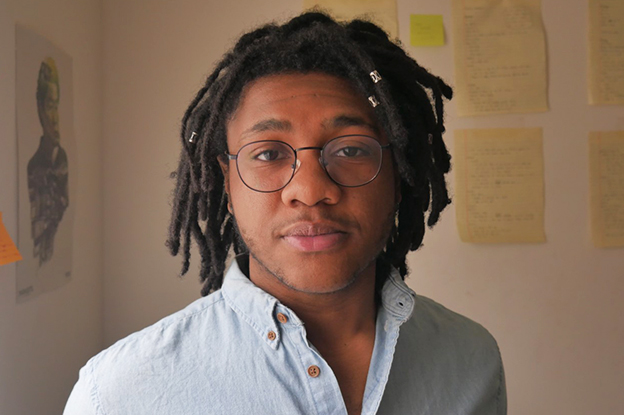
“In that final class that I was in, I was the only Black kid. And I thought about that a whole lot.”
Isaac Izard graduated in May 2020 with a degree in Communication Arts, with a focus on Radio, Television and Film, and a certificate in Digital Cinema Production. Following the switch to remote learning and work, Isaac, like many, has found it difficult to finish coursework, make professional connections, and acquire new job offers. When questioned about the outcry following the death of George Floyd, Isaac addresses his experience with the protests, the changes to Madison’s State Street, and his concerns regarding the role of white allies in the Black Lives Matter movement.
Isaac: Unfortunately, I’ve been missing most of the protests because I have to work or I am doing a project. Walking down State Street these days has been very interesting. I like seeing what people have painted on the boarded-up windows, and it feels like there is an element of solidarity. On the other end of that, I have seen a lot of white people co-opt the Black Lives Matter movement. I do not know how I feel about that. I am a little unnerved by that because I know that a lot of them do not really care or know what they are talking about. There is … a lot of frustration, a lot of mixed emotions.
As a Black man, Isaac also reflects on many of his own encounters with microaggressions and stereotypes while growing up in predominantly white communities in Wisconsin. He notes much of these incidents “have been small things.” Nonetheless, the example below reflects similar generalizations faced by other students of color, including Cynthia and Akshat.
Isaac: There have been small things. For example, I was shooting at a friend’s house, and her mom was there, and she said, “Oh, you like chicken, right?” She kind of guided me toward the chicken. You know, she definitely generalized me, but at the same time, I cannot be mad because I was looking for the chicken. So, it is things like that—I guess you call them microaggressions. I have also grown up in Wisconsin, so I am used to older white people. I just think to myself “you know, they need a software update.” I am not going to fight them. I have adopted a forgive and forget mentality about all of it. I have been super lucky to not have anything overt put in my face.
The lack of diversity while living in Wisconsin has had a significant impact on his own experiences as a student. He states that being the only Black student in class was “strange.”
Isaac: The biggest thing, race-wise, that I think about while living here is being the only Black kid in class. It is strange. In that final class that I was in, I was the only black kid. And I thought about that a whole lot. There were a couple of other students of color, but I was the only black kid, and we were trying to really push diversity.
Also, like others interviewed here, race has also impacted his approach to his career in digital cinema production. He attends to the importance of diversifying the casting process and shooting with people “who look like me.”
Isaac: In our castings, specifically, we wanted to get a colorful cast of people and we just could not find them. It was disheartening. I did shoot a film, where I found a whole cast of black actors. Granted, half of them were my family members. Still, I found friends and people I have been in scholarship programs with, people I have had classes within the past years, who were more than willing to help out. That felt nice. It felt nice to shoot something with people who look like me.
University students and youth have played an integral role in many of the protests that have unfolded in Madison and cities across the country. Likewise, their concerns and individual efforts pushing for racial and social justice have had significant implications on their career goals and prospects. Just as many students have had to contend with the changes to course schedules and professional prospects brought on by the pandemic, many have also had to confront and combat the discriminatory and racist systems built into the fabric of our country—systems which encompass professional environments as well as university campuses.
Staff
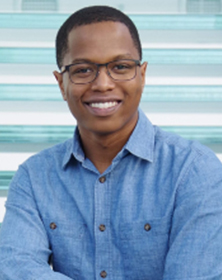 Thaddeus Gue is a fourth-year Posse Scholar majoring in Interior Architecture at the University of Wisconsin-Madison. His professional interests are focused on design strategy and user-oriented environments. He is specifically interested in using design thinking and evidence-based research to improve healthcare and commercial environments through quantitative and qualitative means.
Thaddeus Gue is a fourth-year Posse Scholar majoring in Interior Architecture at the University of Wisconsin-Madison. His professional interests are focused on design strategy and user-oriented environments. He is specifically interested in using design thinking and evidence-based research to improve healthcare and commercial environments through quantitative and qualitative means.
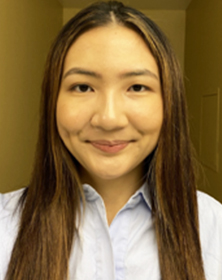 Jessica Hsu was a student intern at CCWT. She is pursuing a bachelor’s degree in Philosophy and History with a concentration in Global History and a certificate in European Studies at UW-Madison. Jessica is passionate about international education and refugee education in the context of migration and workforce development. Her undergraduate research involvement exposed her to the utility of ethnography, and she hopes to spread different narratives of strength and resilience.
Jessica Hsu was a student intern at CCWT. She is pursuing a bachelor’s degree in Philosophy and History with a concentration in Global History and a certificate in European Studies at UW-Madison. Jessica is passionate about international education and refugee education in the context of migration and workforce development. Her undergraduate research involvement exposed her to the utility of ethnography, and she hopes to spread different narratives of strength and resilience.
 Alexandra Pasqualone is a second-year student in a Joint PhD in Educational Policy Studies (EPS) and History. She has spent several years teaching in various capacities, including positions as a high school teacher in NJ, an English teacher at Akdeniz University in Turkey, and a Career Access and College Readiness Coordinator in Philadelphia. She is broadly interested in the historical role of youths as major activists who spurred changes within their communities. As part of her MA thesis at the University of Cincinnati, Alexandra conducted an oral history project attending to the protests of high school students in Philadelphia during the late 1960s and 1970s. Her current research centers around the implications of schools on Arab-American identity formation during the mid-twentieth century.
Alexandra Pasqualone is a second-year student in a Joint PhD in Educational Policy Studies (EPS) and History. She has spent several years teaching in various capacities, including positions as a high school teacher in NJ, an English teacher at Akdeniz University in Turkey, and a Career Access and College Readiness Coordinator in Philadelphia. She is broadly interested in the historical role of youths as major activists who spurred changes within their communities. As part of her MA thesis at the University of Cincinnati, Alexandra conducted an oral history project attending to the protests of high school students in Philadelphia during the late 1960s and 1970s. Her current research centers around the implications of schools on Arab-American identity formation during the mid-twentieth century.
[1] “Police protests: How Madison answered the police killing of George Floyd, in photos,” Wisconsin State Journal, July 11, 2020, https://madison.com/wsj/news/local/crime-and-courts/police-protests-how-madison-answered-the-police-killing-of-george-floyd-in-photos/collection_6f505717-2494-52cb-b81b-2d6b6810b86c.html#1.
[2] Kayla Huynh, “Restore or replace? Community reckons with what’s next for Capitol’s fallen statues,” Wisconsin State Journal, July 3, 2020. https://madison.com/wsj/news/local/restore-or-replace-community-reckons-with-what-s-next-for-capitol-s-fallen-statues/article_1852c355-cb80-583b-a9db-83190fe14e41.html.
[3] Yvonne Kim, “UW responds to racist incidents, COVID-19 pandemic through Zoom town hall,” The Capital Times, Mar 27, 2020. https://madison.com/ct/news/local/education/uw-responds-to-racist-incidents-covid-19-pandemic-through-zoom-town-hall/article_8eecee9b-70c3-56df-adc3-f655498845ef.html.
